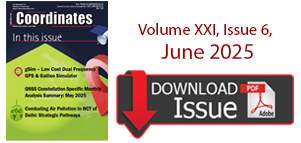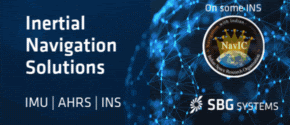| Conference | |
Secure Land Rights and Smart Cities
Report of the UN-GGIM Academic Network Forum |
On 31 July 2017, the UN-GGIM Academic Network, in close collaboration with and the support of UN-Expert Group on Land Administration and Management, UN-GGIM Private Sector Network, and UN-GGIM Geospatial Societies, held a Forum at the United Nations Headquarters in New York. The Forum focused on the theme “Secure Land Rights and Smart Cities – Making It Work for Sustainable Development” as part of the Seventh Session of the United Nations Committee of Experts on Global Geospatial Information Management.
The Forum brought together over 100 delegates, geospatial experts, and academics from over 50 Member States, academic institutions, and the private sector. The participants discussed three major themes: i) the challenges and shortcomings of land rights in the context of rapid and transformative urbanization; ii) the technical and social requirements of developing smart cities for all; iii) the direct link between land rights, smart cities for all, and the SDGs and potential pathways towards the achievement of the SDGs.
Objectives
As the strategic knowledge, research, and training arm of the UN-GGIM, the Academic Network organized the Forum with the following objectives:
a) Present the current status of land tenure, land rights and discuss research and practice in smart cities;
b) Establish a dialogue and exchange ideas around land rights and explore the relationships between that and smart cities to address the challenges and opportunities;
c) To identify relevant challenges and opportunities for the development of effective strategies to secure land rights and smart cities for sustainable development and build and strengthen capability concerning geospatial information and their use, particularly in developing countries;
d) To develop a roadmap that promotes the development of policies, methods, standards and mechanisms to overcome the challenges and create a better linkage between land tenure, land rights and smart cities for all; and
e) Develop a future work plan and research agenda to assist UN-GGIM and member states to respond to the SDGs.
Background
The Academic Network contributes to strengthening global geospatial information management and is committed to the achievement of the 17 SDGs. The development of future smart cities will require access to inclusive services, technologies, and infrastructures. The “leaving no one behind” principle of the SDGs intends to ensure that efforts towards a sustainable and smart future will develop a better future for all communities. Goals 1, 2, and 5 of the SDGs have designated targets and indicators linked to land tenure rights which signifies the fundamental role of land administration in building sustainable and smart cities for all. The UN-GGIM 2017- 2021 Strategic Framework acknowledges the necessity of integrating geospatial information in the process of achieving the SDGs and developing future cities.
As United Nations Member States work towards a sustainable future, land tenure security is one of the greatest challenges identified in the UN-GGIM 2017-2021 Strategic Framework that requires the comprehensive management of geospatial information and resources to ensure social inclusion, economic growth, and environmental protection. The availability of effective and efficient land administration remains a problem worldwide, especially in developing countries where mature land information systems (LIS) and formal land registration systems are not available. Therefore, spatial inclusion, secure land rights, and sustainable land use are all major challenges resulting from rapid urbanization that public and private sectors need to address in the development of future smart cities. The UN-GGIM Academic Network recognizes the importance of promoting and sharing geospatial data and integration approaches, developing of legal and policy instruments, implementation of institutional management models, providing technical solution and standards, enhancing interoperability of systems and geospatial data, and improving access to quality and timely data.
Outcomes
The following points highlight the major outcomes of the forum:
a) Data is the glue that can keep together the 2030 Agenda: the development of a global data ecosystem is necessary
b) Securing and rights require: data, standards, guidelines, tools, infrastructures, targets, indicators, creation and maintenance of digital land records, and global insight—partnerships, awareness and leadership and finance.
c) The achievement of the SDGs will require: private, governmental, and academic partnerships
d) Smart cities will be feasible if good governance is in place: performance, responsibility, and transparency
e) Citizen Science is a key method of data collection: better and more relevant information
f) Legal and policy requirements: protect people against excessive or unfair private power
e) Identified the need to develop:
▪ Capacity building activities
▪ SDGs Research Registry Platform
▪ Indicator Registry Infrastructure
▪ Joint WG with PSN to address the gap between training and industry expectations
▪ Joint WG with UN Geospatial Information Section to support UN Strategic Operation
For more information, please contact: Professor Abbas Rajabifard Chair, UN-GGIM Academic Network abbas.r@unimelb.edu.au http://unggim.academicnetwork.org












 (1 votes, average: 1.00 out of 5)
(1 votes, average: 1.00 out of 5)





Leave your response!